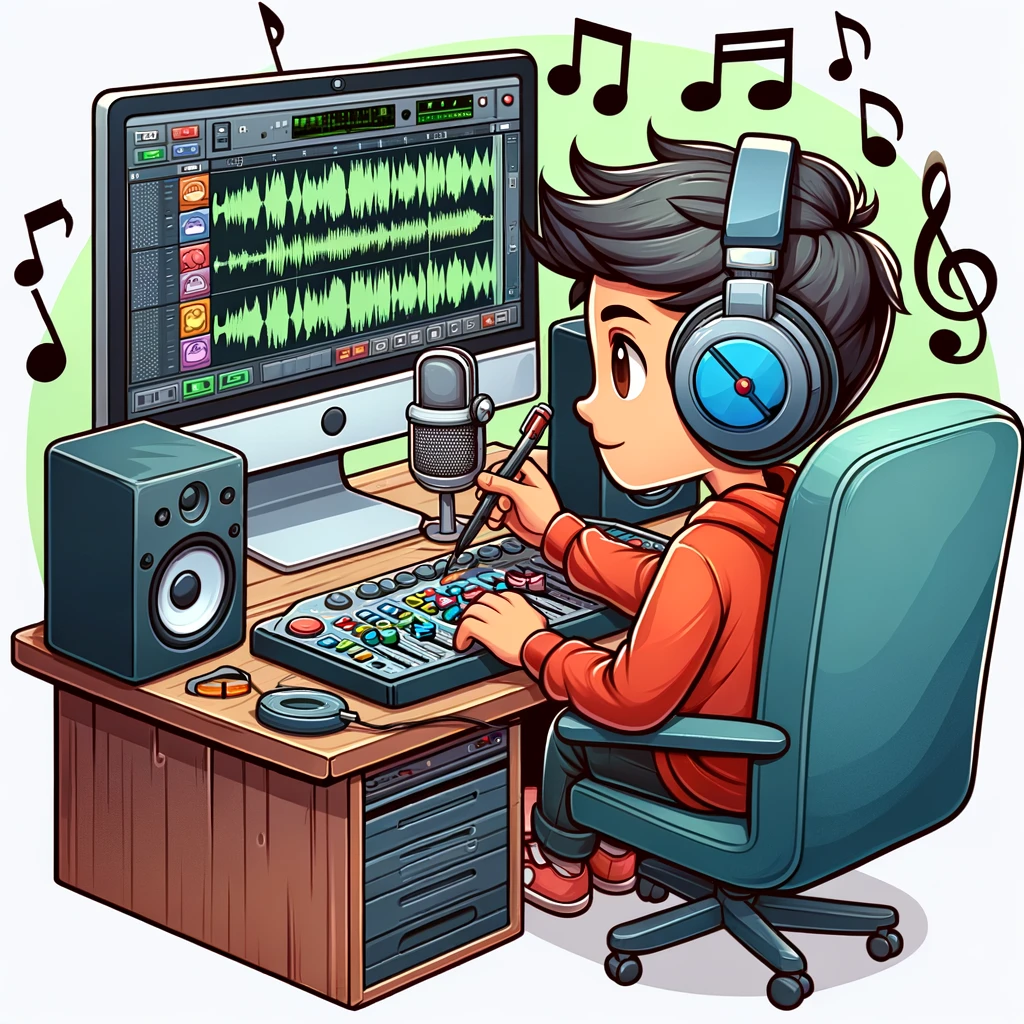Here’s a list of 11 AI tools that can be incredibly helpful for writing books:
- Grammarly: Offers advanced grammar checking, style suggestions, and plagiarism detection, ensuring your book is polished and error-free.
- Scrivener: While not AI-driven, Scrivener is a powerful tool for organizing complex writing projects, such as books, into manageable sections.
- Hemingway Editor: This AI tool enhances readability, ensuring your book is clear and engaging by highlighting complex sentences and suggesting improvements.
- ProWritingAid: Provides comprehensive writing feedback, including style, readability, and grammar improvements, making it an excellent tool for refining book manuscripts.
- Reedsy: Offers a suite of book writing tools, including a writing interface and access to professional editors and designers (not AI but helpful for book writers).
- Sudowrite: Designed as a writing assistant, Sudowrite uses AI to help overcome writer’s block by suggesting ideas, plot points, and character developments.
- Jasper (formerly Jarvis): An AI writing assistant that helps in generating content ideas, writing book outlines, and even drafting sections of your book.
- NovelAI: An AI tool specifically designed for fiction writers, offering features like plot generation and character development assistance.
- Writesonic: Primarily for marketing copy, but its AI can be repurposed for creative writing, offering various templates and writing assistance.
- Kuki: Previously known as Mitsuku, this chatbot can serve as a creative partner, providing feedback and ideas for your writing projects.
- INK Editor: An AI-powered writing platform that helps optimize content for better engagement and readability, useful for making your book more reader-friendly.
Each of these tools brings unique features to aid in the book writing process, from improving writing quality to assisting with creative ideas and organizing complex writing projects.
Introduction
So, you want to write a business book huh? Great! For the likes of you, writing a book is like slapping your knowledge across the planet. It’s like having an imaginary billboard floating in mid-air that screams “I’m an expert!” But let’s be real for a sec, writing can be tough. Like not being able to open the pickle jar kind of tough.
You gotta figure out what you’d like to say, beat up those moments where words just refuse to come out and make sure everything sounds good too. This looks less like running hurdles and more like scaling Mount Everest with bare hands sometimes.
But here’s some good news: AI tools are changing everything. Imagine if there was this overly smart buddy that could give you a nudge when you’re lost, keep your writing on track and even throw in some cool ideas when it seems like you’re structure is falling apart – well that’s exactly why these AI tools exist. They aren’t just typo fixers; they’re personal writing coaches.
In this blog we’ll explain how these AI buddies are making it easy to write that killer business book. Don’t worry though, it doesn’t stop there – we’ll take a sneak peek into the future as well! Who knows? We might live in a world where writers simply can’t live without AI as their best friend anymore… who really knows though? Stick around and let’s talk about how these tools do more than just ease pain — they open up new worlds for folks such as yourself who have something important to say or teach others. Get ready!
Grammarly
Grammarly is a robot that helps improve writing quality and clarity. Its unique powers let it check for grammatical errors, spelling mistakes, and even offers style suggestions. When you need to write your book manuscript or get someone else’s work up to par; this artificial brain will analyze the context and look for other possible ways of saying it.
Pros:
- Advanced Grammar and Spell Check: Spots a vast amount of writing errors.
- Style and Tone Suggestions: Recommends improvements with how you write as a whole.
- Plagiarism Checker: Essential for ensuring originality in your work.
Cons:
- May Miss Contextual Nuances: Sometimes suggestions might not fit the intended tone or style.
- Limited Free Version: You’ll want to pay up for its advanced features.
- No Offline Mode: Requires an internet connection to function properly, so log onto those wifi networks!
Pricing Model:
There is a free version, but you won’t get much from it. For just approximately $12/month you can have all the premium perks! More information can be found on their website at grammarly.com
Scrivener
It’s a tool for big writing projects, like books. It has a bunch of neat features that help out with outlining, structuring and compiling large documents. While it doesn’t use AI, it’s still incredibly organized and easy to work in.
Pros:
- Detailed Organization: Great for big projects since you can break them down
- Customizable Templates: You get to choose from a bunch of templates to find one that perfectly fits your project
- Distraction-Free Writing Space: No distractions means more time spent on actual writing
Cons:
- No AI Features: Scrivener lacks the ability to write for you
- Steep Learning Curve: It’s overwhelming at first, but once you figure everything out it’s smooth sailing
- Limited Collaboration Features: Co-authors won’t be able to work together real-time.
Pricing Model:
Instead of paying monthly or yearly, you pay one time. $49 for macOS and Windows and $19.99 for iOS.
Website: literatureandlatte.com/scrivener
Hemingway Editor
This writing tool uses artificial intelligence to improve your text’s readability. It helps out authors by pointing out passive voice usage, highlights complex sentences and suggesting simplifications so you can make your text more engaging.
Pros:
- Readability improvement: Awesome at making your text concise and easy to understand.
- Easy To Use: Tool is simple to navigate won’t give you any trouble.
- Immediate help: You’ll get real-time suggestions for improving your text.
Cons:
- No Spell Check: There aren’t tools available like spell checking or grammar correction.
- Over-Simplification: The service sometimes makes things too simple with ideas that need more complexity.
- Limited Features: Focuses mainly on just making sure it’s readable without other editing tools
Pricing Model:
Using Hemingway Editor online is free, but if you’d like a desktop app with offline editing it costs $19.99
Website: hemingwayapp.com
ProWritingAid
ProWritingAid is a feature-rich writing tool that does more than just assist with grammar. Offering feedback on writing style, structure, pacing and even readability, it’s perfect for authors looking to refine their manuscripts.
Pros:
- In-depth Writing Analysis: The software offers suggestions on style, structure, word choice and more.
- Reports and Visualizations: There are detailed reports to analyze your writing strengths and weaknesses.
- Integration Options: Works with most writing platforms and software.
Cons:
- Can Be Overwhelming: Some users might find the amount of feedback overwhelming – especially beginners.
- Subscription Cost: While there is a free version available with basic features, you’ll need to pay around $79/year for the premium version if you want advanced analysis.
- Occasional Over-Correction: The software might suggest changes that don’t align with the writer’s intent.
Pricing Model:
The prowritingaid.com website offers a free version with basic features. If you want more advanced analysis in the premium versions then they start at around $79/year.
Now let’s move on to Reedsy.
Reedsy
Not an AI tool. But a full book writer platform, with services ranging from professional editing to book design. Connects authors to seasoned editors, designers and marketers who help you refine and promote your books. Reedsy also has a user friendly book editor tool for writing and formatting.
Pro’s:
- Access Professionals: Get matched with experienced editors, designers and marketers.
- Quality Services: High standard professional assistance at various stages of book publishing.
- User friendly book editor: Simple but effective for writing and formatting.
Con’s:
- No AI Assistance: No AI driven writing or editing capabilities.
- Cost: Professional services can be expensive.
- Limited to external assistance: Not focused on improving your own writing skills but instead matching you up with professionals who can get the job done for you.
Pricing Model:
Signing up for Reedsy is free, but the cost for professional services varies based on the provider you choose to work with.
Website: reedsy.com
Sudowrite
Sudowrite has been customized to help creative writers, including novelists. This AI writing assistant can suggest plot developments, descriptions, dialogues to overcome writer’s block. It will cleverly adjust your sentences to better impact and even offer ’twist’ features that suggest unexpected plot turns.
Pros:
- Creative inspiration: You’ll never run out of ideas with this one.
- Enhances writing: Is your prose getting a little stale? Worry not! Sudowrite will keep things fresh for you.
- User-friendly interface: Is there anything worse than a bad user interface? No need to worry about that here.
Cons:
- Dependence on AI: The more you rely on the suggestions from the AI, the less room you’ll have to grow in your own creativity.
- Irrelevance: Like any other suggestion giver, sometimes the suggestions just don’t match what you’re trying to convey or write about.
- Costs money: Subscription-based model. I think we’ve all had enough of those.
Pricing Model:
You’ll have to subscribe and find out how much it costs yourself. But don’t worry, they’ll be sure to take your money whether you like it or not!
Website: sudowrite.com
Now let’s dive right into Jasper (formerly Jarvis).
Jasper
Jasper, formerly known as Jarvis, is an AI tool that uses machine learning to help you write. You input text and the tool analyzes it to produce coherent paragraphs and stories.
Pros:
- Versatile: Can help you write any part of a book.
- Idea generation: If you’re suffering from writer’s block, Jasper gives you ideas for your next paragraph.
- Saves time: Writing a first draft is hard. This tool will get it done quickly.
Cons:
- Lack of voice: The articles might sound robotic (well, they are made by robots).
- Requires editing: Automation isn’t perfect yet. There may be some bizarre sentences every now and then.
- Paid features: The free version of Jasper only gets you so far. If you want access to everything the software has to offer, it’ll cost ya’!
Pricing Model:
This service has three different models with varying prices depending on how much use and what special features it’ll need. Go check out jasper.ai for prices.
Next I’m going to talk about NovelAI
NovelAI
What It Does & AI Functionality:
NovelAI is an AI tool made specifically for those who write fiction. It helps in developing the plot, characters, and even writing dialogues. The algorithms behind this tool are trained on a diverse range of literary sources so it can suggest contextually appropriate ideas for various elements of storytelling.
Pros:
- Focused on Fiction Writing: It was made to meet the specific needs of novelists.
- Creative Assistance: Generating plots, characters, and dialogue can be easier with this tool.
- Enhances Story Development: Unique ideas will be suggested to you that will add depth to your story.
Cons:
- Creativity Limitations: AI suggestions might be dry compared to human creativity.
- Potential for Inconsistencies: You may need to edit the content generated by the AI as there’s a possibility of inconsistencies.
- Subscription Model: A paid subscription is needed if you want full access to everything this tool has to offer.
Pricing Model:
NovelAI uses a subscription model. Pricing information can be seen on their website with different tiers offering various features.
Website: novelai.net
Let’s proceed with Writesonic.
Writesonic
Writesonic is a writing tool that uses artificial intelligence. It was initially made to help with marketing but it can be used just as effectively for creative content, like book writing. It’s packed with features to help you generate ideas and even draft entire sections of your book. The AI creates text that follows the context of what you’re writing.
Pros:
- Create Various Types of Content: You’re not limited to only using this when writing books.
- Saves Time: Great for rough drafts or general thoughts.
- Easy to Use: Navigating through its UI is simple enough even if you have no experience with writing software.
Cons:
- Quality Control: Depending on what it spits out, you might find yourself making many adjustments.
- Limited Author Control: Don’t expect perfect suggestions all the time.
- Subscription Only: You won’t get any advanced features without paying a monthly fee
Pricing Model:
The tool’s pricing differs depending on how much you use it. But they do offer a free trial so you can see if it works for your needs before committing.
Kuki (Previously Known as Mitsuku)
Kuki, formerly known as Mitsuku, is an AI chatbot that can serve as an unconventional but creative tool for book writers. While not specifically designed for book writing, Kuki can offer conversation, brainstorming ideas, and even some quirky inspiration. It’s like having a virtual brainstorming partner.
Pros:
- Creative Interaction: Engaging with Kuki can spark new ideas and perspectives.
- Conversational AI: Offers a unique way to overcome writer’s block through interaction.
- Free to Use: Accessible without any cost.
Cons:
- Not Tailored for Writers: Primarily a chatbot, not specifically designed for book writing.
- Limited Practical Application: More of a creative aid than a practical writing tool.
- Randomness in Responses: Can sometimes provide irrelevant or nonsensical answers.
Pricing Model: Kuki is free to use.
Website: kuki.ai
Moving on, I’ll review INK Editor next.
INK Editor
INK Editor is an AI-powered writing tool that focuses on optimizing content for better reader engagement and readability. It’s tailored for writers looking to enhance the appeal and clarity of their work. The AI in INK Editor assesses your writing and offers suggestions to improve its flow, engagement factor, and SEO-friendliness.
Pros:
- Content Optimization: Great for making your writing more reader-friendly.
- SEO Assistance: Offers SEO guidance to improve the online visibility of your content.
- User-Friendly Interface: The tool is easy to navigate and use.
Cons:
- Primarily for Web Content: Though adaptable, it’s more geared towards online content creators.
- Subscription for Full Features: Advanced features require a paid subscription.
- May Not Suit All Writing Styles: Suggestions are based on general readability and SEO, which might not align with certain creative writing styles.
Pricing Model:
INK Editor offers a free version with basic functionalities. The premium version, which includes advanced SEO and writing features, comes with different subscription plans.
Website: inkforall.com
Closing thoughts
And there you have it – a comprehensive look at some of the most powerful AI tools available to writers today. From the organizational prowess of Scrivener to the creative sparks offered by Kuki, each tool brings something unique to the table. Whether you’re wrestling with writer’s block, looking to polish your prose, or seeking to optimize your content for a wider audience, there’s an AI assistant out there tailored to your needs.
As we’ve explored, these tools are not just about correcting grammar or checking spelling; they’re about enhancing your entire writing process, infusing technology into the art of storytelling. They offer the potential to transform not just how you write, but what you can achieve with your writing.
Remember, while AI can offer incredible assistance, the true essence of your writing comes from your unique perspective and creativity. These tools are here to support and enhance your talent, not replace the human touch that makes each story and piece of content special.
As we move into the future, it’s exciting to think about how AI will continue to evolve and further integrate into the world of writing. The possibilities are endless, and the potential is enormous. So, embrace these tools, experiment with them, and see how they can take your writing to new heights.
Thanks for joining us on this journey through the world of AI writing tools. Whether you’re a seasoned author or just starting your writing adventure, we hope this blog has offered valuable insights and helps you unlock new levels of creativity and efficiency in your work. Keep writing, keep exploring, and let AI be your ally in crafting compelling, captivating, and high-quality content. Happy writing!

Edwin reigns supreme as the chief honcho at AIToolBird.com. Fueled by a burning passion for AI, marketing savvy, and a knack for nifty tools, he’s the guy who believes that artificial intelligence will one day be smart enough to laugh at our jokes. But until then, he’s content being the punchline of his own: “I asked my AI to tell me a joke about marketing, and it told me to ‘increase my bandwidth.’ I guess it thought I was lagging!”

























